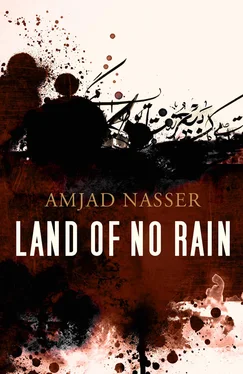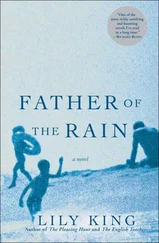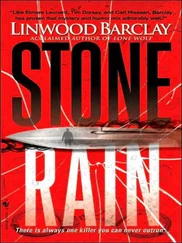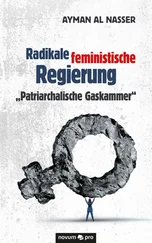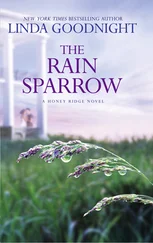When she was going over, for some reason, some of her old stories about her young revolutionary husband, she would ask you whether the subject bothered you. With just one or two words or a shake of the head you would say no. She didn’t like that. She thought it showed that you weren’t interested in her, not that you believed that her right to her own past was non-negotiable and required no apologies. Because there was nothing she needed to be embarrassed about or apologise for. Her suggestion that you weren’t interested would annoy you. But was it without basis? Did it occur to you to analyse the components of your alleged position? It didn’t. You seemed to be afraid to go deeper into the subject, in case you might be included among those comrades that the great revolutionary once likened to radishes — red only on the outside.
Your marriage wasn’t bad. You didn’t completely fail to live up to the adjustments, concessions and promises required when two people live under the same roof, but nonetheless you sometimes felt, or dreamt, that you were still the adolescent you once were. You saw yourself as a young man with long hair and a droopy moustache, running through the stations on a radio that would fit in the palm of your hand, in search of those heart-rending songs that were popular in the prime of your youth. That feeling, or dream, did not last long: your wife’s voice, reminding you that this or that needed doing, brought you back to the fact that you were with her, to the conjugal bond and its obligations. And then you’re a solid man. That’s how you appear to those who see you, or how you would like others to see you. Beauty unsettles you. You get excited. You cry. But that doesn’t last long either. You don’t have any obvious tendency to become addicted to anything. And you thought your wife had no doubts about you, was in fact immune to narrow feelings of jealousy, until a certain piece of paper crossed your path.
A colleague of your wife’s and the colleague’s husband, local people, had invited you to spend the weekend with them in a town in the south where they had a country house. You had visited the town and the area several times. It was famous for its old castle, which reminded you of similar castles in the world you came from, and it was warmer than the City of Red and Grey. You used to go there ‘to free inspiration from its bottle’, as you put it. It was an offhand rhetorical phrase, but of your own making. You would sit on a wooden bench by a small river with sheep bleating on the banks, their tails like dogs’ tails, not like the famous fat-tailed sheep of your country. You would sit there like a fisherman waiting for a bite, with the big castle in front of you and the little rippling river running by your side. You did write, but as for ‘freeing inspiration from its bottle’, that’s a different matter.
You and your wife took the train, through long dark tunnels and across deep green pastures where you saw cows with their heads to the ground, heavy louring clouds, and horses wrapped in blankets like mules. The people in that country don’t meet their guests at stations or airports, as they do in your country. Your wife’s colleague didn’t live far from the station: a fifteen-minute walk or less. You walked down a long street lined with identical terraced houses with red tiled roofs and marked with numbers. Your wife suddenly bent down and picked up a piece of paper from the ground. You don’t know what made her do that, because she didn’t usually stare at the ground, as you have long been in the habit of doing, looking for things that have fallen from people’s pockets. It must have been your bad luck that made her pick up this piece of paper, or maybe something else. The piece of paper was old. That was obvious from its appearance — the creases and the lined paper. You saw your wife shiver silently after opening it up and reading some lines. When she looked at you out of the corner of her eye, you realised it had something to do with you. ‘What’s up?’ you asked. She didn’t say anything. She thrust the piece of paper at you. The handwriting was similar to your own, which unconsciously imitates a hand you knew well. It was a love letter but you had no idea where or when it was written. The handwriting was very like yours, and your wife knew the name of the woman to whom it was addressed and something of what had happened between you and her. It was an old affair, from the distant past. Nonetheless you had always tried to avoid talking about it with your wife, not because she was jealous of a woman who now had another life far away, but maybe because of your reserved nature, even though you could be talkative when you were interested and in a good mood.
You can control when you speak out and when you hold your tongue, but how can you control what you say in your sleep? In the dreams and nightmares you have. Those long rambling monologues that your wife sometimes wakes up to, and then she strokes your head so tenderly.
How could it have happened?
The letter quoted a short poem in traditional metre from your book Tilka allati, or That Which , and the poem included clear references to your first love. In those days you hadn’t yet had a book published in Hamiya, and Tilka allati didn’t contain a single poem in traditional metre. And after you fled your country you gave up writing in traditional metre because the jaunty rhythms and the artificial diction made you sick. In prose and narrative you began to discover latent poetical possibilities and a freedom of expression that were hard to find in poems of a genre dominated by big issues, poems full of slogans, polemics and angry ranting.
Although your wife maintained her composure she wasn’t convinced by your arguments or by the evidence you started to lay out: first, the fact that there was no signature on the letter; second, that names and even handwriting can be alike; and third, that Tilka allati didn’t contain any poems in traditional metre. Finally, after you ran out of arguments, you said, ‘Even if we suppose the poem is mine, that’s not evidence that I wrote the letter. People have a right to quote a poem, even one by an obscure poet.’
Without telling you, your wife seemed to think that your first love might also have moved to your last country of exile. You knew your hunch was on the right track because married couples, after living together for a while, can read their partners’ thoughts even as they take shape in their minds. Your brother Shihab had also called to tell you about rumours that a general amnesty for convicted fugitives was imminent (such rumours came and went and then reappeared without anyone knowing who started them or how true they were). Before ending the call he had told you that your wife had called him to ask how they were and that among other things she had asked about Roula, your first love. Your wife was dumbfounded when she found out that Roula had never left your country and that in that hot and arid place she had three or four children. Although the weekend in that country town passed well enough, afterwards you noticed that the papers piled on the table in your study were not as tidy as they had been, your pockets had been turned out, and your wife was all ears whenever you spoke with anyone on the phone, especially in your native language.
One can’t be unlucky all the time.
That would be against the nature of things.
That person they call Sharara,
The epitome of pessimism and bad luck,
Even he strikes lucky some of the time.
You and your wife were listening to a serious radio station. You rarely watched television, because the obtrusive pictures left no room for imagination. There was a programme on about how the things we lose or throw away, such as papers, books, watches and pens, can come back to haunt us. The subject of the programme hit a sore spot, as they say. It frightened you. You tried to change the station. You were worried its revelations might corroborate the evidence against you. But your wife, who knew intuitively what was going on in your head, insisted on listening to the end. The presenter was interviewing a middle-aged woman. You gathered this from her voice and from the events that came up in the programme. Judging by the rustling that you heard, similar to the sound of someone handling papers, the interviewer seemed to be showing her something. ‘Is this your handwriting?’ he asked her. It took some time before the woman said, ‘Yes, it’s my handwriting.’ The interviewer said, ‘I’m showing you some pages, just at random, but can you remember when and where you wrote them?’
Читать дальше
